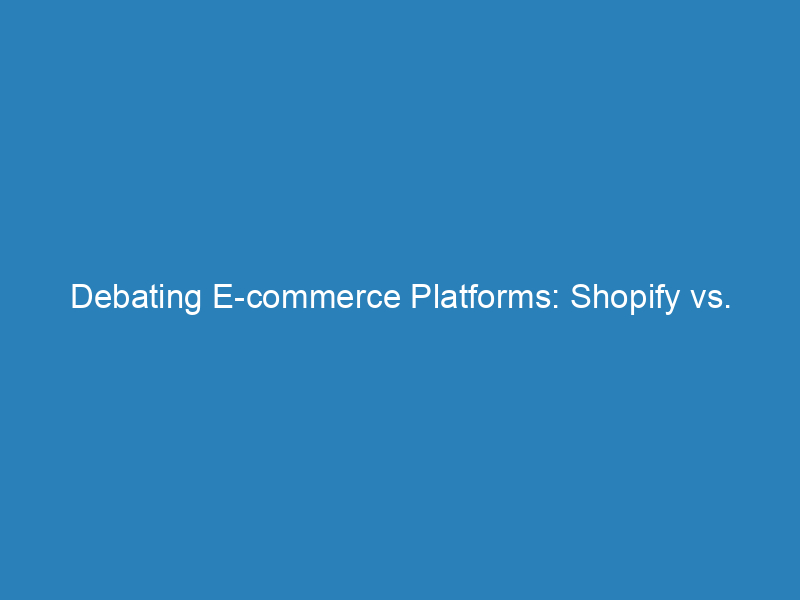
Debating E-commerce Platforms: Shopify vs. WordPress for Customization and SEO
Choosing the right platform for an e-commerce website can be a daunting task, especially with two popular options like Shopify and WordPress in the mix. Each platform has its own strengths, but many users find themselves leaning towards one over the other based on specific needs and preferences.
Shopify: The E-Commerce Specialist
Shopify is designed specifically for online businesses, making it an ideal choice for those looking for a straightforward, user-friendly experience. Its built-in features cater to a variety of e-commerce needs, from inventory management to payment processing, making it an excellent option for beginners or anyone who prefers a hassle-free setup. Moreover, Shopify provides reliable customer support, which can be a lifesaver for those who may not be as tech-savvy.
Key Features of Shopify
- Ease of Use: The intuitive interface allows users to set up their stores quickly, without requiring extensive technical knowledge.
- Built-in E-Commerce Tools: Shopify comes with numerous features such as payment gateway integration, shipping tools, and marketing resources.
- Support: Dedicated customer service ensures that help is always available when needed.
WordPress with WooCommerce: Flexibility and Customization
On the other hand, WordPress, especially when used with the WooCommerce plugin, offers unmatched customization and flexibility. This is particularly beneficial for businesses that want their online presence to reflect their brand’s unique identity. The vast ecosystem of plugins and themes available for WordPress enables users to create a feature-rich e-commerce site tailored to their specific needs.
Advantages of Using WordPress
- Customization: WordPress allows for extensive customization options, enabling businesses to create a unique online experience.
- SEO Capabilities: The platform excels in search engine optimization, offering various tools and plugins to enhance visibility in search results.
- Community Support: A large community of developers and users provides a wealth of resources, tutorials, and forums for assistance.
User Experiences and Perspectives
In discussions among users, opinions vary widely. Some users express a strong preference for Shopify, citing its ease of use and all-in-one solution as major advantages, especially for those who may not have technical expertise. Others advocate for WordPress, highlighting its flexibility and SEO benefits as critical factors that can help a brand stand out in a competitive market.
Ultimately, the choice between Shopify and WordPress with WooCommerce largely depends on individual needs and comfort levels. Those seeking a simple and efficient setup may prefer Shopify, while users who value customization and control might lean towards WordPress.

